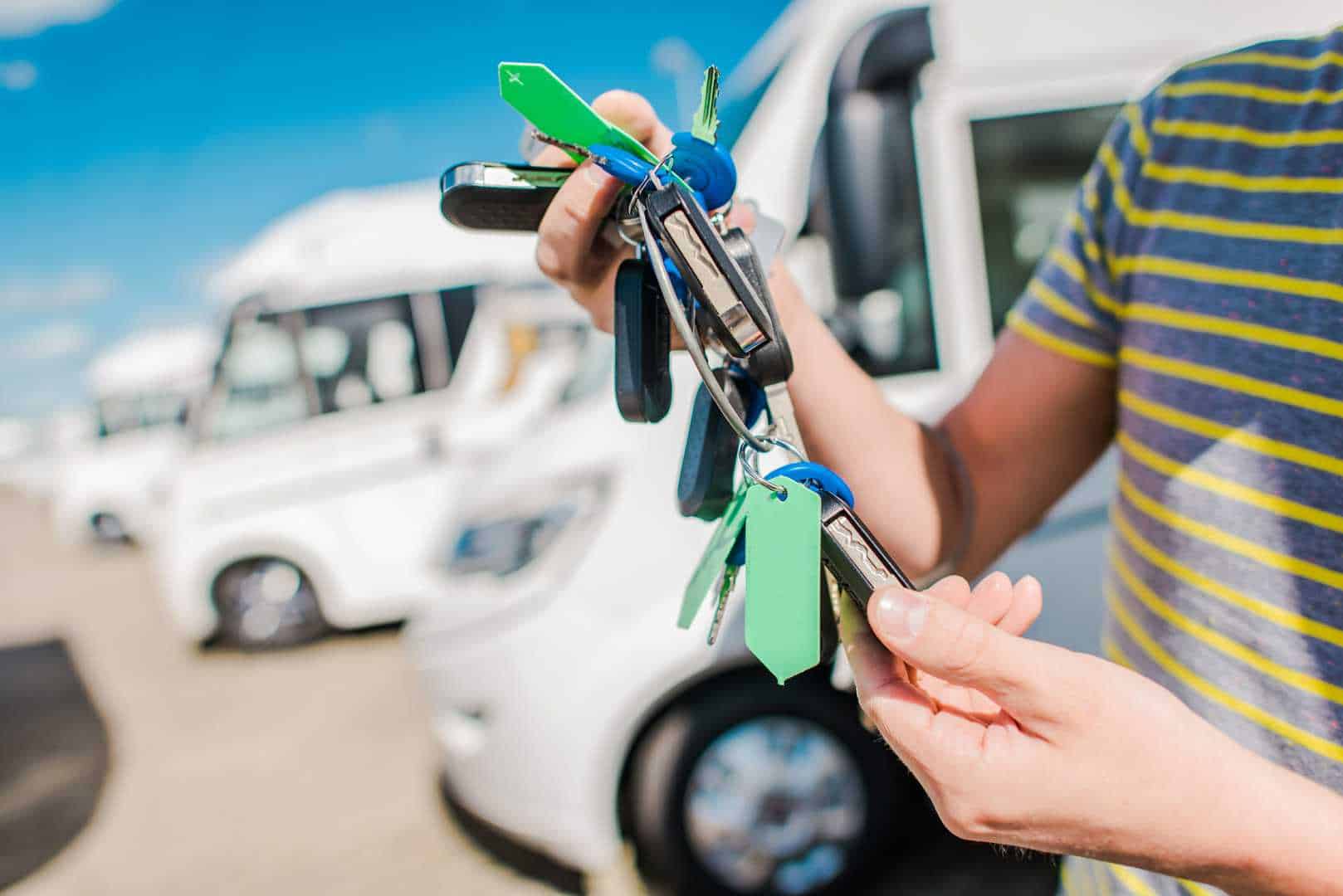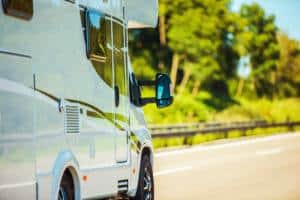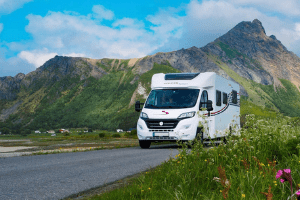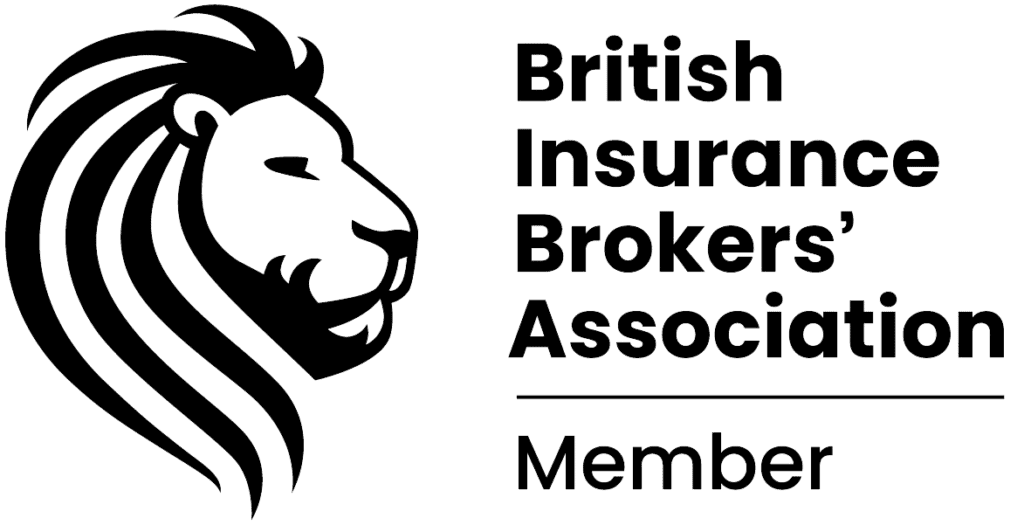Owning a motorhome gives you the freedom not offered by any other vehicle – you can simply pack up, hit the road and see where your travels take you. If you’re thinking of buying a motorhome for the first time, you can either buy a brand new motorhome or buy a second-hand motorhome. The second-hand market is a good place to start, particularly if you’re a new driver and shopping around means you might find a reasonably-priced camper that has all the extras already fitted and all the teething problems sorted out.
But buying a second-hand motorhome can be a relatively daunting task, not only will you generally have to spend upwards of around £10,000, but you’ll also have to work out the type and size of motorhome you need, considering what equipment is included, and factoring in the running costs.
Our guide to buying second-hand motorhomes will explain everything you need to know.
Should you buy a caravan or a motorhome?
If you already own a car, you might consider buying a caravan that you can simply hitch to the tow-bar and take on tour, but before you commit, consider the type of touring you want to do. If you plan on driving to a caravan park and settling down for a few days, a towing caravan will be a good fit, but if you prefer shorter, one or two night stays before moving on, you might find the constant hitching and unhitching of the caravan a big inconvenience. In this instance, a campervan or motorhome will be what you’re after.
What is the difference between a motorhome and a campervan?
Although the terms are often interchangeable, there is a difference between a motorhome and campervan and it’s worth taking advice on buying a campervan or a motorhome. The choice you make will ultimately come down to the size of van you want and the equipment you need.
If you want a vehicle that’s as close to a home-from-home as you can get, with a well-equipped bathroom and kitchen facilities, along with more spacious sleeping areas and a separate driver compartment, then it’s a motorhome you need. If you just need something a little more compact, with modest sleeping and kitchen facilities, a camper van will suit you.
In short, the difference between a motorhome and a campervan comes down to size and performance, and motorhomes are better equipped for families, while campervans are ideal for anyone travelling alone or in a couple.
Once you know exactly what you’re after, it’s time to take a look at what’s available.
Where to buy a second-hand motorhome
As with any vehicles, you can buy second-hand motorhomes from both dealers and private sellers, but motorhome shows are often the best place to pick one up. It’s usually only dealers who are allowed to sell at outdoor motorhome shows, so anything you buy should come with a warranty as standard or at an extra cost. It’s always worth considering taking out a warranty on your motorhome, to give you the peace of mind that you’re covered for repairs should anything wrong.
If you buy privately, you might be able to demand a lower price, but it’s unlikely your motorhome will come with any warranty and you’ll have no comeback if something goes wrong, so always asses all the options before parting with your cash. You should also consider the following when buying a motorhome privately:
Buying a used motorhome checklist
- Motorhomes can have problems with damp, which can be costly to have repaired. So make sure you get a professional to carry out a full damp test. This is part of the wider habitation check which is essential to ensure you are not surprised by the condition of the vehicle. If serious damp is found, consider very carefully whether the motorhome is worth buying and, if so, make sure the cost of any repair work is reflected in the price you pay.
- Stolen motorhomes are a problem on the private market, so carry out a full HPI check before you buy, to make sure it’s not been or hasn’t been written off after an accident.
- Always view the motorhome at the seller’s house, and check name and address against those on the registration documents.
- If you don’t know your way around a motorhome and its workings, get a mechanic or an expert to give it a once over, check the base vehicle and the cab, looking for any signs of rust or welding work that might need carrying out. And check that things like lights, electric windows and mirrors all work properly.
- Take it for a test drive, so long as you’re insured to do so. If not, get the seller to take you out for a test drive, so you can see how it performs.
- Give the habitation area a thorough going over, checking all the gas and electrics work, including the grill, hob and oven. Make sure the fridge runs off the battery, and that all lights and sockets are working properly. Then give the bathroom a once over to make sure the taps, shower and toilet all work. These things should be inspected as part of your habitation check.
- Make sure the bed is comfortable and can be easily accessed if it’s above the cab, and if any beds need assembling or pulling out, make sure you do so, even if you don’t plan on using them.
- Thoroughly check both the interior and the exterior for signs of damage or excessive wear. And keep an eye out for any stickers or decals that may be covering up severe dents or scratches. Make sure everything is clean and well cared for. If not, make sure this is all reflected in the selling price.
- Ask to see all service records and receipts for any repair or warranty work that’s been carried out, as this allows you see what work has been done and whether it’s been done by a reputable garage.
- Also, in general, a full-service record means the motorhome has been well looked after.
It’s important that you do as much research as possible before you start viewing any motorhomes, so you have a good idea of exactly what you’re after and know what to look for – the more information you arm yourself with, the more informed a decision you can make.
How much does it cost to run a motorhome?
It’s unlikely that your motorhome will be something you use on a daily basis, so all running costs could well be in addition to another vehicle you own. This means you’ll have extra insurance, tax and maintenance costs, as well as additional running costs when travelling.
Most motorhomes run on more economical diesel engines, so are more cost-effective on long journeys where you can expect to get around 35 miles-per-gallon, depending upon the weight of your unit and how you drive it.
Motorhome vehicle tax can cost from £145 a year to £465 a year, depending upon when it was first registered, and its value at registration, while insurance costs vary depending upon your age, driving experience and claims history.
It’ll cost around £40 for an MOT, plus any repair costs if it fails while servicing and maintenance costs should be between £250 and £500 a year.
Do you need a special licence to drive a motorhome?
If you passed your driving test before the January 1st, 1997 your licence should include category C1 vehicles, which means you can drive vehicles with a maximum authorised mass (MAM), which is its weight plus the maximum load it can carry, of between 3.5 tonnes and 7.5 tonnes..
If your licence doesn’t include category C1 vehicles, you won’t be able to drive a motorhome with a MAM that exceeds 3.5 tonnes. So bear this in mind before you buy.
If you’re looking at a motorhome that exceeds the 7.5 tonne limit, bear in mind that you’ll need a category C (HGV) licence to legally drive it, so it might be worth looking elsewhere if you don’t fancy taking an extra test.
If you’re an older driver, above the age of 70, there are some additional licence restrictions you have to be aware of before you take your motorhome on the road.
How to make sure your motorhome is fully insured
It’s important to factor in insurance costs when buying a second-hand motorhome, and when choosing an insurer, it’s vital to make sure your cover offers the exact protection you need.
To find the right policy to suit your needs, give our insurance experts a call on 0208 9840 666 – our unrivalled choice of policies is what helps 93% of our customers rate our service as ‘Excellent’ on Trustpilot with a customer satisfaction score of 9.7 out of 10.*
*June 2019













